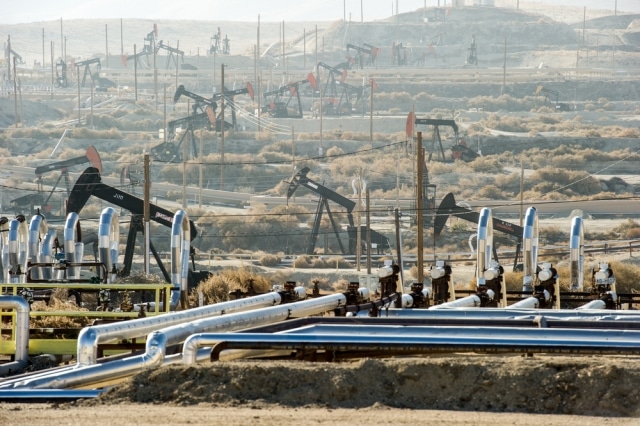“We cannot solely rely on abundant gas to solve the climate change problem. The climate change problem requires a climate change solution. Abundant gas could be great for any number of things, but it is not going to solve the climate change problem.”
This statement was made by Haewon McJeon, the lead author on a new study published last week by Nature magazine, which concluded that cheap abundant natural gas will actually delay any efforts to reduce carbon emissions.
This isn’t the first study to reach this conclusion. In the 2013 study “Climate Consequences of Natural Gas as a Bridge Fuel,” author Michael Levi reached a similar conclusion. He noted that for natural gas to be beneficial as a bridge fuel it had to be a short bridge with gas consumption peaking by 2020 or 2030.
The new study, Limited Impact on Decadal-Scale Climate Change from Increased Use of Natural Gas, looks at natural gas consumption increasing through 2050.
These recent findings differ from those of a 2011 study from MIT co-authored by Ernest Moniz. That report concluded: “The newly realized abundance of low-cost gas provides an enormous potential benefit to the nation, providing a cost-effective bridge to a secure and low carbon future.” That report, The Future of Natural Gas, also noted “the environmental impacts of shale development are challenging but manageable.”
Ernest Moniz is now the current Secretary of Energy, so it should come as no surprise that the favored approach of the Obama administration is one that takes us down the path that this new study in Nature says will do nothing to reduce carbon emissions.
In his Senate confirmation hearing, Moniz made it clear that the natural gas bridge he envisioned was not a short bridge, the Washington Post reported.
“In broad terms,” Moniz testified, “we find that, given the large amounts of natural gas available in the U.S. at moderate cost … natural gas can indeed play an important role over the next couple of decades.”
And while Moniz has consistently championed Obama’s “all of the above” approach to energy, Obama and Moniz will not be making policy in 2020 when we will have reached the beginning of the end of Michael Levi’s short bridge. In their place it will most likely either be a climate-denying Republican or Hillary Clinton, which means the odds of an improvement in policy are very slim.
At the recent National Clean Energy Summit, Politico reported that Hillary Clinton repeated the natural gas as bridge theme and compared natural gas favorably to coal.
“The boom in domestic natural gas production is an example of American innovation changing the game,” Clinton said. “With the right safeguards in place, gas is cleaner than coal.”
Clinton’s support of natural gas should come as no surprise since during her tenure as Secretary of State she oversaw State Department efforts to encourage fracking for natural gas around the world. These efforts often directly benefited major American oil and gas companies such as Chevron, not known for their commitment to the environment.
In one example reported by Mother Jones, Mark Gitenstein, the U.S. Ambassador to Romania, explained how it was an ambassador’s job to work on behalf of corporations.
“The Romanians were just sitting on the leases, and Chevron was upset. So I intervened,” Gitenstein said. “This is traditionally what ambassadors do on behalf of American companies.”
Clinton is not alone among leading Democratic candidates for president in her strong support of global fracking of natural gas. Mother Jones also noted that Vice President Joseph Biden visited the Ukraine and assured the Ukrainian government that “We stand ready to assist you,” referring to developing their shale gas. Biden’s son Hunter also recently joined the board of a Ukrainian energy company.
Even with evidence mounting that using natural gas as a decades-long bridge to a low-carbon future is not possible, the current administration and the leaders of potential future administrations are all heavily invested in this approach. Of course, they assure us everything will be fine as long as we have the “right safeguards in place” and that the U.S. will be the country to teach the rest of the world about such safeguards,
While aiding Chevron in its efforts, Ambassador Gitenstein assured Romanians concerned about the potential dangers of fracking that their concerns were unwarranted. He let them know that in America, the natural gas fracking industry had, “obtained great successes — without consequences for the environment.”
That’s yet more evidence that the U.S. government is continuing to stick its head in the sand where the environmental impacts of fracking are concerned (for instance, the fact that California aquifers have been contaminated with billions of gallons of fracking wastewater).
Add to that this latest evidence that fracked natural gas is not part of any realistic climate solution and it’s clear the U.S. government needs a wakeup call on its natural gas policy.
Subscribe to our newsletter
Stay up to date with DeSmog news and alerts






